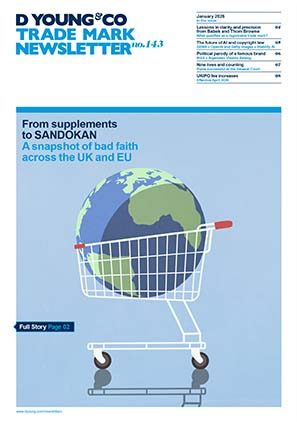GENGHIS KHAN decision highlights importance of industry peculiarities to unregistered company rights
A famous German music producer and founder of the band Genghis Khan, has brought an infringement action against the band’s former lead singer in a counter attack at the Munich courts, based on unregistered rights to the band name, as well as other grounds. This came after the defendant attempted to prevent performances of the ‘revived’ band on German TV in relation to the 2018 FIFA world cup in Russia (District Court Munich I, judgment of 27 July 2021, 33 O 6282/19).
The Court of Justice of the European Union’s (CJEU) 2003 ANSUL judgment (C-40/01) addressed the lapse of registered trademark rights; since then, the standards for proving genuine use of marks has been widely discussed in trademark circles. Only in late 2020, in the Testarossa judgment (C-720/18), did the CJEU confirm that – for luxury sports cars – even small sales revenues for spare parts could suffice for proving genuine use in relation to land motor vehicles. Just a few years previously, the General Court had, in the TVR ITALIA decision (T-398/13), also applied a rather generous, industry specific standard for proving genuine use, and consequently refused a revocation motion against the then insolvent UK car manufacturer TVR. Somewhat similarly, the Munich District Court has now confirmed that even a music band’s long-lasting break up did not allow a general assumption of lapse of the founder’s unregistered rights in its company/band name.
Facts
The plaintiff was the famous German Schlager music producer Ralph Siegel, most renowned for the song A little Peace, a number one hit and winner of the Eurovision Song Contest 1982, performed by then 17-year-old German high-school student Nicole. A few years before, in 1979, the plaintiff had also formed the German Euro disco-pop band, ‘Dschinghis Khan’ (Genghis Khan), which celebrated its greatest international successes with the songs Genghis Khan and Moscow in the early 1980s. The defendant was lead singer of the original formation and part of a later revival in 2007. In 2014, the defendant left the band again and has since performed as a solo artist under the name Dschinghis Khan mainly in Eastern Europe. While the plaintiff did not take issue with these performances, in 2018, he decided to use the Dschinghis Khan name for the FIFA World Cup in 2018 in Russia. The defendant, in return, attempted to prevent performances of the plaintiff’s revived Dschinghis Khan band on German television by invoking rights in the figurative German mark below.

The plaintiff countered the defendant’s attack with an infringement action at the Munich courts based on unregistered rights to the band name Dschinghis Khan. Specifically, he claimed that, as founder, he was entitled to all rights to the company name/work title for the German territory, and owned respective copyrights in the logo, used on album covers, among other things. He argued that the entire project was exclusively his own work, based on his own ideas, and that he had composed all relevant songs himself. Moreover, he claimed authorship of the logo that the defendant had registered only in 2017. The defendant, to the contrary, argued that Siegel had consented to use of the band name as part of a contractual agreement in 2007. He claimed that the band was a group that had performed for years in largely the same line-up and that the band members had also engaged in composing songs. Thus, he alleged the right to the band name would not belong to the plaintiff alone, but to all band members.
Decision
The Munich District Court ruled in favour of the plaintiff, and confirmed that, as producer and creator of the Dschinghis Khan music project, Siegel was entitled to the corresponding company name rights. According to the court, even the lengthy breakups of the band in the period from 1986 to 2006 did not affect the rights of the plaintiff, as the band’s music had been sold throughout the whole period. The court emphasised that the peculiarities of the music industry must be taken into account. Consequently, even if a music group has broken up, this would not allow a general assumption of lapse of rights. Overall, the court confirmed the plaintiff’s infringement allegations.
Comment
While to some extent this decision is an item from the curiosity cabinet of company name law, it surely emphasises that the diverse peculiarities of different industries are carefully considered by German courts. Overall, the basic tone of the Munich District Court’s decision on unregistered rights follows the trend set by the European courts in the TVR Italia and Testarossa cases towards a more industry specific and generous standard for accepting genuine use in trademark law. Owners of registered trademarks as well as owners of unregistered company signs on a national level should hence always keep the argument of specific industry customs and peculiarities handy to counter non-use-based allegations.
This article was first published on World Trademark Review on 07 October 2021: www.worldtrademarkreview.com.
